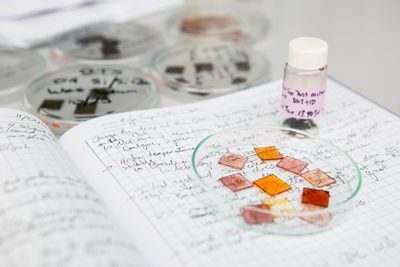Undergraduate program
Bachelor of Science in Chemical Engineering (BS, Chem E): a professional degree that prepares students to work in electronics, chemicals and chemical processes, oil production, government, forest products, and other industries. This degree also prepares students for advanced graduate study in chemical engineering (M.S. and/or Ph.D.) as well as professional programs in medical, law, or business schools. The BS, Chem E degree is offered with or without a Degree Option in Nano and Molecular Engineering, which provides additional training and experience related to molecular and nanoscale phenomena.

Graduate programs
Master of Science in Chemical Engineering (MS, ChemE), non-thesis option: an intermediate advanced degree intended primarily for students not continuing on to a Ph.D. degree.
Master of Science in Chemical Engineering (MS, ChemE), thesis option: an intermediate advanced degree intended primarily for students continuing on to a Ph.D. degree.
Doctor of Philosophy in Chemical Engineering (Ph.D., ChemE): the primary advanced degree, preparing individuals for independent and productive professional careers in industry, government, and academia.
Accreditation
The Undergraduate Chemical Engineering Program at UW is accredited by the Engineering Accreditation Commission of ABET, http://www.abet.org, under the commission's General Criteria and Program Criteria for Chemical, Biochemical, Biomolecular, and Similarly Named Engineering Programs.
Program educational objectives
The UW undergraduate chemical engineering program seeks to provide a well-balanced education that prepares students for diverse careers, professional success, creative contributions, and responsible global citizenship. These goals are embodied in the following educational objectives:
Within 3-5 years of graduation, our alumni will:
- Apply knowledge, tools, and skills learned during our program in their chosen professional career path.
- Advance in a career as a chemical engineer in industry or government, and/or succeed in advanced graduate or professional training.
- Contribute professionally to growing areas of technology and the economy.
Student outcomes
We expect our students, by the time they graduate, to attain the following Student Outcomes:
1. An ability to identify, formulate, and solve complex engineering problems by applying principles of engineering, science, and mathematics.
2. An ability to apply engineering design to produce solutions that meet specified needs with consideration of public health, safety, and welfare, as well as global, cultural, social, environmental, and economic factors.
3. An ability to communicate effectively with a range of audiences.
4. An ability to recognize ethical and professional responsibilities in engineering situations and make informed judgments, which must consider the impact of engineering solutions in global, economic, environmental, and societal contexts.
5. An ability to function effectively on a team whose members together provide leadership, create a collaborative and inclusive environment, establish goals, plan tasks, and meet objectives.
6. An ability to develop and conduct appropriate experimentation, analyze and interpret data, and use engineering judgment to draw conclusions.
7. An ability to acquire and apply new knowledge as needed, using appropriate learning strategies.